Alabama only state to limit media to 1 witness at execution
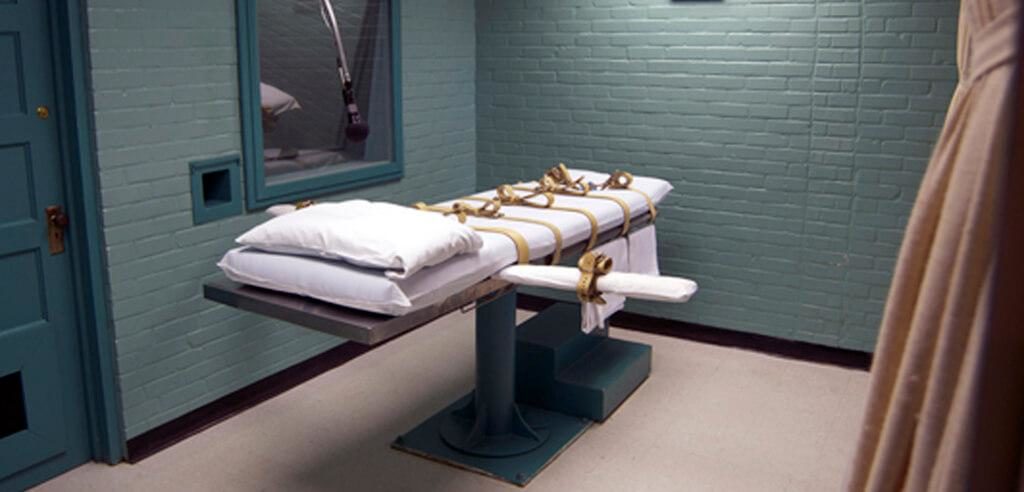
Alabama will be the third state to carry out an execution during the COVID-19 pandemic and will be the only prison system to reduce the number of news media witnesses to a single reporter. The Alabama Department of Corrections said because of COVID-19 precautions only one reporter, a representative of The Associated Press, will be allowed to witness Thursday’s lethal injection of Willie B. Smith. The state in the past allowed five media witnesses, although the number of outlets sending reporters is sometimes less than that. Only the federal government, Texas, and Missouri have carried out executions since the pandemic began last year. None reduced the number of media witnesses to a single reporter. There have been 19 executions carried out since April of 2020, according to a database maintained by the Death Penalty Information Center. All of them were attended by multiple reporters with the exception of one lethal injection in Texas where the prison system neglected to notify reporters it was time to carry out the punishment. Robert Dunham, executive director of the Death Penalty Information Center, said the media serves an “irreplaceable function” as “the public’s witnesses and play a vital role in holding states accountable when executions visibly go wrong.” “If an execution is not safe enough to be witnessed by the full complement of reporters, the remedy is not to decrease accountability and increase secrecy by excluding media witnesses who would otherwise be permitted to attend. If an execution is not safe enough for witnesses, it is not safe enough to go forward at all,” Dunham wrote in an email. Paige Windsor, the executive editor of the Montgomery Advertiser, said the news organization disagreed “that the press restrictions were necessary for COVID mitigation, especially once a vaccine was available.” “We object to any laws, procedures or practices that limit press coverage of state business, particularly when that business involves killing a human being in the public’s name. Reporting on all aspects of these proceedings is how a free press ensures the public’s business is carried out as prescribed,” Windsor said in an emailed statement. The Alabama Department of Corrections did not immediately respond to an email seeking comment. The prison system wrote in a media advisory issued Monday that the number of witnesses were being limited, “due to measures necessary because of the COVID-19 pandemic.” It is the same procedure and witness restrictions the state planned to use at Smith’s original execution date in February. That execution was called off by the state. Two reporters witnessed the two executions carried out in Missouri during the pandemic. And two or more reporters witnessed the executions in Texas, with the exception of the May lethal injection of Quintin Jones. Two reporters had been set to witness the execution, but a prison spokesperson never received the usual telephone call to bring them to the execution chamber. Thirteen of the 19 executions were carried out by the federal government. The AP served as the national media pool, providing coverage to other outlets, but local news outlets also witnessed the executions. An AP analysis earlier this year found that those executions may have acted as a superspreader event for COVID-19 infections. Most states have not carried out death sentences during the COVID-19 pandemic. Smith is scheduled to be executed by lethal injection for the 1991 kidnapping and killing of Sharma Ruth Johnson, 22. Prosecutors said Smith abducted Johnson at gunpoint from an ATM in Birmingham, stole $80 from her and then took her to a cemetery where he shot her in the back of the head. Smith’s attorneys on Tuesday asked the 11th U.S. Circuit Court of Appeals to block the lethal injection, arguing the intellectually disabled inmate could not understand the prison paperwork that laid the groundwork for the planned lethal injection. Lethal injection is the main execution method used in Alabama. But after lawmakers authorized nitrogen hypoxia as an execution method in 2018, the new law gave death row inmates a 30-day window to select nitrogen hypoxia as their execution method. Nitrogen hypoxia is a proposed execution method in which an inmate would breathe only nitrogen, thus depriving him or her of oxygen, causing unconsciousness and then death. Three states have approved it as an execution method, but it has never been used. Smith did not turn in a form selecting nitrogen, paving the way for the state to execute him next week by lethal injection. The state has not developed a procedure for using nitrogen as an execution method, and at least for now is not scheduling executions with nitrogen hypoxia. “I did not understand the Election Form because I’m slow and have trouble reading,” Smith said, according to a declaration filed with the emergency request for a preliminary injunction. Republished with the permission of the Associated Press.
Court says workers can’t sue over blocked minimum wage boost

Fast food workers can’t sue the Alabama attorney general over a 2016 state law that blocked a minimum wage increase in the state’s largest city, a federal appeals court ruled Friday. The 11th U.S. Circuit Court of Appeals sided with the state of Alabama, saying the workers do not have standing to sue over the 2016 state law that prohibited cities from setting their own minimum wage. The lawsuit centers on a 2016 state law passed in response to Birmingham’s attempts to raise the hourly minimum wage. The city of Birmingham planned to raise the minimum wage to $10.10 per hour. Alabama lawmakers responded by swiftly passing a state law that prevented cities from doing so. Fast food workers, the Alabama Chapter of the NAACP and others sued state officials, saying the state law violated the voting rights and civil rights of Birmingham residents. They contended it was racially discriminatory and another example of the majority-white Legislature exerting control over majority-black cities such as Birmingham. The court only ruled that the plaintiffs did not have standing to sue, and not on the other claims. Lawmakers who supported the state law said that they were worried about the impact on businesses and argued that it was important for economic development for the state to have a uniform minimum wage. Alabama has no minimum wage above the federal minimum of $7.25. A group advocating for a higher minimum wage, Fight for $15 and a Union, issued a statement strongly criticizing the decision. “This decision is a disgrace to the rich history of Birmingham, where some of the most consequential struggles of the civil rights movement took place over 50 years ago and where Black, white and brown workers continue to demand justice today,” the statement said. Richard Rouco, an attorney representing plaintiffs in the case said they were disappointed. “The majority opinion makes it more difficult for individuals to vindicate their civil rights,“he wrote in an email. Alabama Attorney General Marshall Steve Marshall said in a statement that he was pleased with the ruling, saying the court “agreed with the state of Alabama that the plaintiffs had no standing to sue the attorney general over their complaints about Alabama’s minimum wage law.” “I also think the substance of the plaintiffs’ challenge lacked merit, but the court withheld judgment on that question because the plaintiffs failed to show that the attorney general ever harmed them,” Marshall said. The decision in favor of Alabama came after a majority of judges on the 11th Circuit withdrew a decision by a three-judge panel of the court that would have allowed the litigation proceed. The court said in January that the case would be heard by all the judges in the circuit. Republished with the Permission of the Associated Press.
Federal court considers bathroom use by transgender student
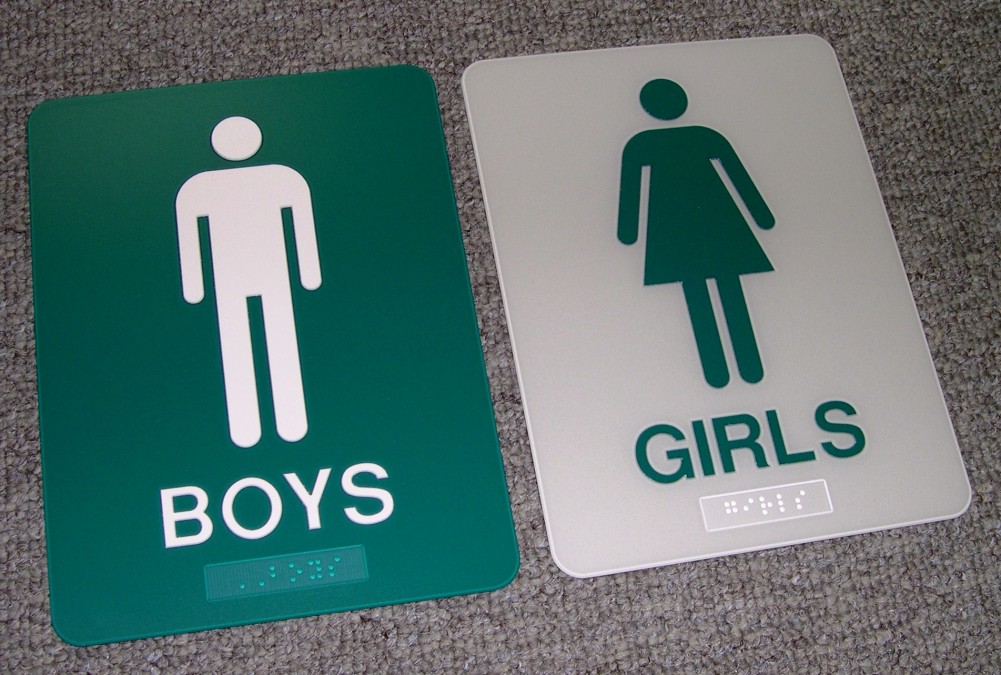
A student has the right to use the bathroom that corresponds to his gender identity, a lawyer told a federal court Thursday, arguing that the issue is about the right of transgender students to “equal dignity.” But the Florida school district that’s appealing a lower court order in favor of the transgender boy told three judges on the 11th U.S. Circuit Court of Appeals that they should overturn the ruling and let the school district restrict students to the bathroom matching their at-birth sex to protect the privacy of other students. The case involves Drew Adams, who has since graduated from Nease High School outside Jacksonville. Adams transitioned from a girl to a boy before his freshman year, and used the boys’ room at the Ponte Vedra, Florida, school for a few weeks before several girls complained. Administrators barred him from the boys’ restroom and instead steered him toward single-user gender neutral restrooms. A lower court last year overturned that policy after a bench trial, ordering the St. Johns County school district to let Adams use the boys’ restroom. The 11th Circuit could become the first federal appeals court to issue a binding ruling on the issue, which has arisen in several states. The ruling would cover schools in Florida, Georgia and Alabama, and could carry the issue to the U.S. Supreme Court. The 4th Circuit had ruled in favor of a transgender Virginia student, but the U.S. Supreme Court sent the case back down for further consideration after the U.S. Department of Education, under President Donald Trump, withdrew guidance that said federal law called for treating transgender students equally, including allowing them to use the bathroom that matches their gender identity. All the parties in the Atlanta courtroom Thursday were aware of the possibility that the ruling will set an important precedent. Lawyer Tara Borelli of Lambda Legal, who represents Adams, said after the hearing she was hoping schools will get “a clear statement that the law requires that transgender students be treated equally.” But Circuit Judge Bill Pryor hammered Borelli, asking her how the judges could uphold the lower court ruling without setting the stage to allow anyone to ask for access to any bathroom or finding all sex-based distinctions illegal. “These rationales apply to any form of sex-based segregation,” Pryor said. Borelli, though, repeatedly underscored that Adams is not seeking to abolish distinctions between men and women. “This case is only about me, a boy, being allowed to use the boys’ bathroom,” Adams said after the hearing, echoing what Borelli told Pryor. Adams, now a student at the University of Central Florida, told reporters that he’s never had a problem using a men’s bathroom. “Before this became an issue, nobody knew who I was, nobody cared what bathroom I used,” Adams said. “Most people when they use the bathroom, don’t look twice at who’s in there with them. So, this really wasn’t an issue until the school board made it an issue.” A lawyer for St. Johns County urged judges to reverse the ruling and uphold the policy restricting students to the bathroom of their at-birth sex, saying the trial court judge overstepped. “Differences between the sexes are real and it necessitates this kind of separation between the sexes,” lawyer Jeff Slanker told judges. “This has always been the way it’s been done.” Judge Beverly Martin repeatedly asked Slanker if he could provide any specific complaints that spurred the policy. Slanker could not, saying the school district acted “proactively” to protect students’ privacy interests. The trial judge rejected this argument, finding that Adams would use a stall and that no breach of privacy would occur. Borelli told judges the district’s policy would “heap discrimination on transgender students.” “There is no recognized right in the law to not have to share space with transgender students,” she argued. Follow Jeff Amy on Twitter at https://twitter.com/jeffamy. Republished with the Permission of the Associated Press.
Donald Trump nominates Judge Andrew Brasher to 11th Circuit Appeals Court
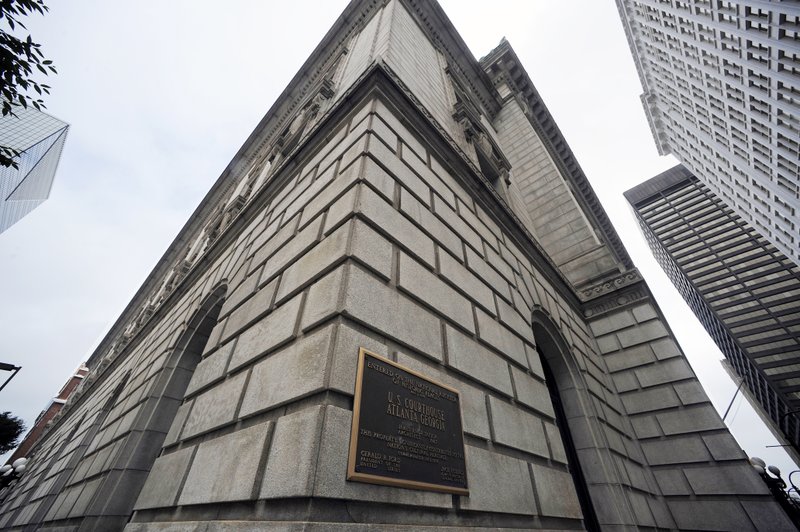
President Donald Trump on Wednesday nominated U.S. District Judge Andrew Brasher of Alabama to the 11th U.S. Circuit Court of Appeals. The nomination comes just six months after Brasher was seated on the federal bench in Alabama. The White House announced the nomination in a news release. Senators in May voted 52-47 to confirm Brasher as a federal district judge. Brasher was Alabama’s solicitor general’s office in the Alabama attorney general’s office before joining the bench. The position put him in charge of appellate cases and other notable litigation, including defending Alabama’s legislative redistricting plan and an attempt to require abortion doctors to have hospital admitting privileges. Some of that work was cited by The Leadership Conference on Civil and Human Rights and other groups earlier this year in opposing his nomination as a district judge. Brasher is a graduate of Harvard Law School. He served as a law clerk to Judge Bill Pryor of the 11th U.S. Circuit. Pryor is a former Alabama attorney general. “Judge Brasher distinguished himself as a legal scholar during his lengthy tenure as solicitor general of the State of Alabama, arguing and winning cases before the U.S. Supreme Court, the U.S. Court of Appeals for the 11th Circuit, and the Alabama Supreme Court,” Alabama Attorney General Steve Marshall said in a statement. Republished with the permission of the Associated Press.
11th Circuit court revives Birmingham minimum wage lawsuit

A federal appeals court on Wednesday revived a lawsuit that had accused the Alabama Legislature of racially discriminating against the city of Birmingham by preventing the majority-black city from setting a minimum wage within the city limits. The 11th U.S. Circuit Court of Appeals reversed a judge’s decision to dismiss the lawsuit. The court said that “plaintiffs have stated a plausible claim that the Minimum Wage Act had the purpose and effect of depriving Birmingham’s black citizens equal economic opportunities on the basis of race.” Birmingham had been poised to be the first Southern city to raise the minimum hourly wage after the city council in 2015 approved an increase to $10.10. But before it was implemented, the Alabama Legislature in 2016 swiftly passed a law requiring a uniform state minimum wage, effectively nullifying the planned increase. Fast food workers and civil rights groups filed a lawsuit, arguing that the law was “tainted with racial animus” since it was pushed by white suburban Republican legislators in the majority-white Alabama Legislature and disproportionately affected black workers in the majority black city. Supporters of the state law say the city initiative would stall economic development. The court only revived the racial discrimination claim. The court ruled the judge was correct to dismiss other claims in the suit. “The Eleventh Circuit Court of Appeals today refused to give state legislatures a pass when their dominant white majorities use their power to undermine local democracy and discriminate against African Americans and people of color attempting to build a better and more just future through their local governments,” Christine Owens, executive director at the National Employment Law Project, said in a statement. Republished with the permission of the Associated Press.
11th Circuit upholds Alabama PAC transfer ban

A federal appeals court has upheld the constitutionality of Alabama’s campaign law, which bans the transfer of campaign contributions between one political action committee (PAC) to another. On Tuesday, the 11th U.S. Circuit Court of Appeals upheld the lower federal court ruling that the 2010 law is not an unconstitutional prohibition on free political speech. The court said Alabama has a sufficiently important issue in preventing corruption or the appearance of corruption, that the PAC-to-PAC transfer ban supports this interest. Alabama Attorney General Luther Strange hailed the court’s ruling. “The appeals court ruling is a significant victory in Alabama’s ongoing fight against public corruption,” said Strange. “The PAC-to-PAC transfer ban has been instrumental in limiting campaign corruption while adding greater transparency to the elections process. I am pleased the federal appeals court upheld the constitutionality of this important law.” The Alabama Democratic Conference (ADC), one of the Yellowhammer state’s oldest political organizations, sued state officials over a portion of the law. The appellate court’s three-judge panel ruled the law did not prevent the ADC from raising funds otherwise to support its activities. “The ban does not limit the amount of money the ADC can raise; it only limits the ADC’s ability to raise money through a specific type of donation — PAC-to-PAC transfers,” said the opinion, written by U.S. Circuit Judge Beverly Martin. “Moreover, the ban does not directly affect the ADC’s campaign contributions or independent expenditures. The ADC can continue to make unlimited contributions and independent expenditures.” Following the decision, Joe Reed, executive director of the ADC, said the decision would make it harder for the ADC to raise funds. “Not only ADC, it’s going to be harder for everybody,” he said.
High court rejects appeal over long hair in Alabama prisons

The Supreme Court won’t hear an appeal from Native American inmates who want to wear their hair long in Alabama prisons. The justices on Monday let stand an appeals court ruling that said the state’s prison system could keep in place its policy requiring male inmates to cut hair short. Inmates argued that keeping their hair long is part of core Native American religious traditions. But prison officials said long hair was a hygiene risk and could be used to conceal weapons and contraband. The 11th U.S Circuit Court of Appeals acknowledged that many other prison systems allow inmates to follow the grooming practices of their religion. But the appeals court ruled that Alabama’s system could make its own assessment on the benefits and risks. Republished with permission of the Associated Press.
Luther Strange “disappointed” by appeals court ruling in religious liberty case, vows to fight on
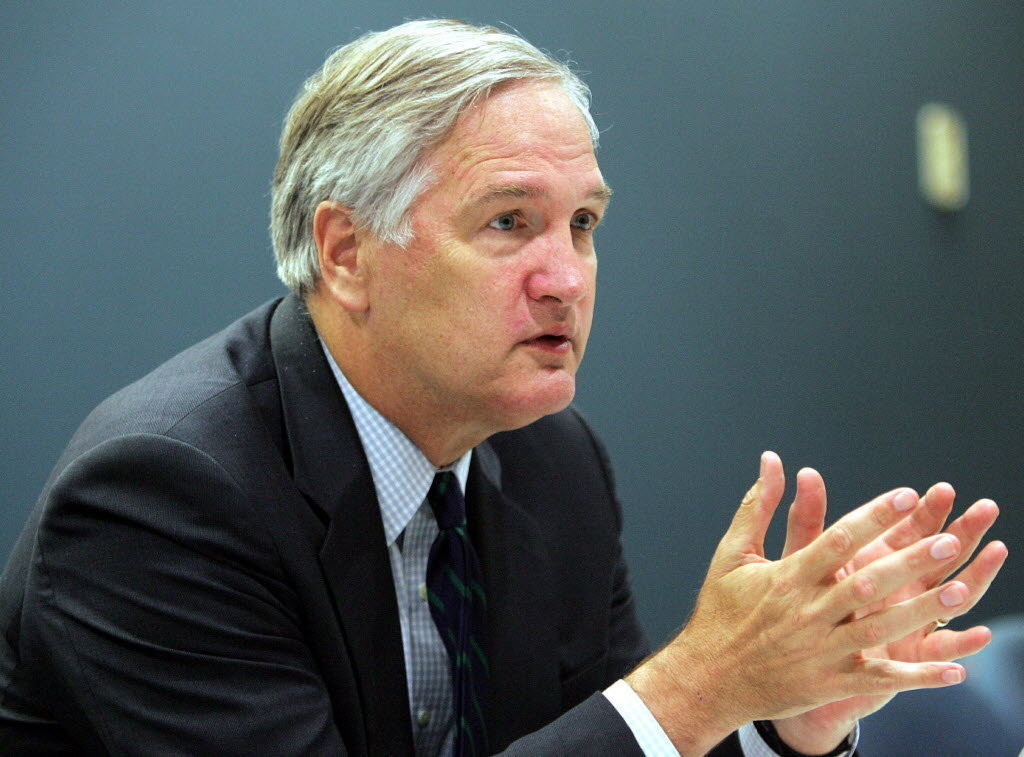
Alabama Attorney General Luther Strange said he was disappointed by a recent federal appellate panel’s decision in a religious liberties case involving broadcast company Eternal Word Television Network, where the Catholic network sought exemptions from a contraception coverage mandate in the Affordable Care Act. EWTN, based in Birmingham, lost their appeal 2-1 on Thursday in the 11th U.S. Circuit Court of Appeals. The prevailing justices ruled the firm must provide contraception coverage to their employees, regardless of their convictions against the practice contraception, which is prohibited in orthodox Catholic doctrine. Strange, however, pointed to another upcoming case whose outcome could vindicate the broadcasters’ court defeat. “I am disappointed in the ruling but the battle to defend religious liberty from federal assault continues as Alabama and 19 other states have joined a similar lawsuit, “Zubik v. Burwell,” before the U.S. Supreme Court this year,” said Strange. “Religious nonprofits like EWTN provide a tremendous service to the public and have no less a constitutional right to exercise their religious beliefs than an individual citizen.” The state of Alabama was a co-plaintiff in EWTN’s case against the federal government’s infringement upon the liberty of religious nonprofits and supported its appeal when a lower court first ruled against them in 2014. Though there are fines associated EWTN’s non-compliance with the law, they have so far been spared having to pay them by an court injunction, pending the outcome by the Zubik case. That decision was also announced Thursday.
Court rules against teachers’ lobby in retaliation claim

A federal appeals court has ruled that the Alabama Education Association can’t subpoena the files of GOP politicians to try to prove legislation was motivated by political revenge. The 11th U.S. Circuit Court of Appeals on Wednesday ordered that the subpoenas should be quashed. AEA claimed that Republicans were motivated by political retaliation when they passed a 2010 law that stopped public employee associations from collecting dues by payroll deduction. The law said public payroll deduction can’t be used to support political activity. The appeals court said the law had already been ruled constitutional so AEA has no valid federal claim to justify getting the files. AEA had sought records from former Gov. Bob Riley, Gov. Robert Bentley, House Speaker Mike Hubbard and Senate President Pro Tem Del Marsh. Republished with permission of the Associated Press.
Court: Suit over using teen as bait in sex sting can proceed
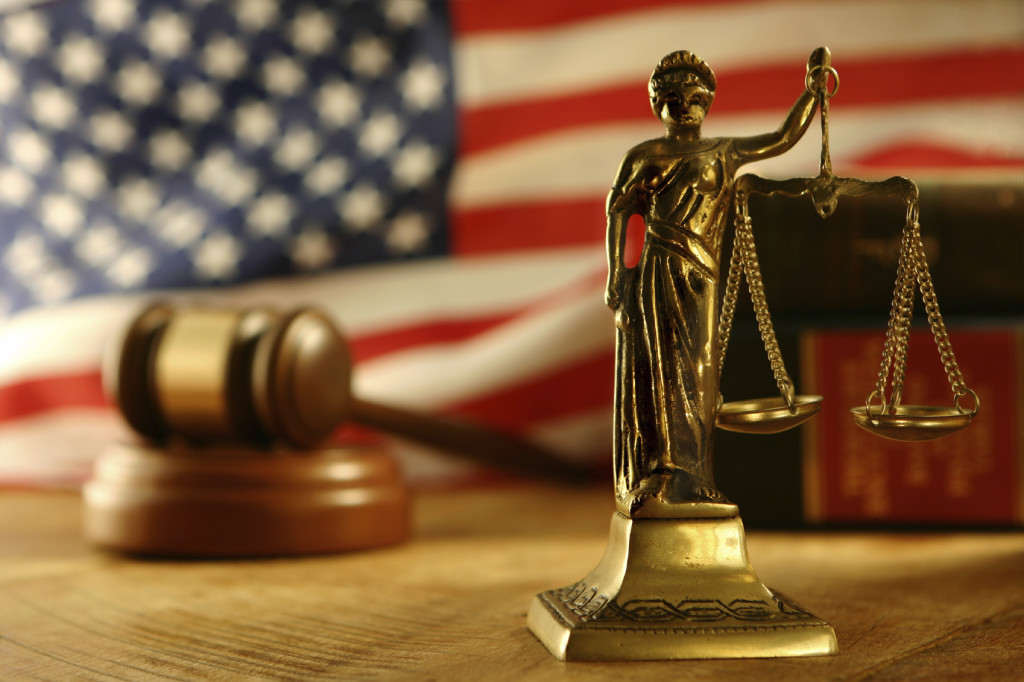
A federal appeals court in Atlanta on Wednesday allowed a lawsuit against an Alabama school board to continue over a 14-year-old girl who was used by a school employee in a plot to catch an alleged sexual predator. A middle school teacher’s aide asked the 14-year-old to go into a bathroom as bait so a 16-year-old eighth-grader with a history of sexual harassment allegations could be caught trying to have sex with her and could be disciplined. The plan backfired, and evidence shows the girl was sexually assaulted. Why the plan was carried out and who knew about it are at issue in the court fight that pits the man and his daughter against the north Alabama school district that says its administrators aren’t to blame for the 2010 attack. The U.S. Department of Justice and 33 groups that advocate against sexual violence last year filed a brief in the case asking the 11th U.S. Circuit Court of Appeals to overturn the lower court’s decision to dismiss the federal lawsuit filed by the girl’s father against the Madison County School Board and several employees at the time. They argued that U.S. Magistrate Judge Michael Putnam should have let the father’s lawsuit move forward, arguing Putnam erred when ruling that Sparkman Middle School officials didn’t have sufficient warning the boy might pose a threat. Putnam didn’t endorse the idea of using a girl as bait for a predator but said allowing her to be put in such a position wasn’t bad enough for the lawsuit to continue under legal standards. The lawsuit was filed under federal Title IX law, which in part prohibits sexual harassment in schools, including student-on-student harassment. A three-judge panel of the 11th Circuit found the suit did meet the necessary requirements to be considered under that law. Eric Artrip, a lawyer for the girl and her father, said in a phone interview that he’s pleased with the decision. “Hopefully, one day soon our client will have her day in front of a jury,” he said. “That’s what we’ve wanted all along and that’s what she’s wanted all along.” Lawyers for the school board did not immediately return a call and emails seeking comment Wednesday. Court files do not include the girl’s name, and The Associated Press isn’t reporting the boy’s because he was a juvenile at the time, wasn’t charged with a crime and was dismissed as a defendant in the lawsuit. Authorities have said the boy wasn’t prosecuted because the girl initially said she wasn’t threatened or forced to have sex. Republished with permission of the Associated Press.
Judge won’t release Siegelman on appeal bond
A federal judge on Thursday refused to free former Alabama Gov. Don Siegelman from prison while he continues to appeal his 2006 bribery conviction. Siegelman has raised significant issues, but the 11th U.S. Circuit Court of Appeals is unlikely to grant Siegelman a new trial since the court has already rejected similar arguments from his co-defendant, Richard Scrushy, U.S. District Judge Clay Land of Georgia said in his 31-page order. A federal jury in 2006 convicted Siegelman of federal funds bribery on allegations that he sold a seat on a hospital regulatory board to former HealthSouth CEO Richard Scrushy in exchange for $500,000 in donations to Siegelman’s unsuccessful 1999 campaign to get Alabama voters to approve a state lottery. Siegelman was also convicted of obstruction of justice. Siegelman, 68, has been serving a 6 1/2-year sentence at a Louisiana prison camp. Siegelman attended a Monday hearing in Montgomery before Land while shackled and wearing a red jail jumpsuit. The former Democratic governor is arguing his 2006 trial was tainted by the involvement of a prosecutor with ties to GOP politics. His lawyers also say the trial judge made legal mistakes when sentencing Siegelman. Then-U.S. Attorney Leura Canary announced her recusal from the investigation in 2002, three years before Siegelman was indicted, after Siegelman’s lawyer made an issue of her husband’s work in GOP politics. Siegelman’s lawyers argued she still remained improperly involved in the case. Justice Department lawyer John-Alex Romano argued Canary had no decision-making role in the case and handled only the management duties of her office. In his order, Land expressed concern over some of the issues raised by Siegelman, particularly that the court did not let him investigate the extent of Canary’s involvement. Land said there was some evidence that Canary did not completely “divorce” herself from the case, and he believes the trial court should have let Siegelman get more information through documents or testimony. However, he said that the 11th Circuit ruled against similar discovery requests by Scrushy, and Siegelman had not proven why the appeals court would rule any differently for him. Republished with permission of the Associated Press.


